From lockdowns to pool parties: how Covid rules vary around the world | Coronavirus
Brazil
Curfews and lockdowns Restrictions have largely been relaxed in most of Brazil’s 26 states, although several continue to limit opening hours for bars, restaurants and shops. A round-the-clock curfew was imposed this week in Brazil’s biggest state, Amazonas, after hospitals were overwhelmed.
Schools Closed last March and largely still closed. Most universities, public and private, have yet to restart in-person classes.
Socialising Outside Amazonas state, there are no restrictions on how many people can meet or where.
Travel Foreigners are allowed to fly in to Brazil providing they show a negative PCR test from within 72 hours of the journey. Travellers coming from elsewhere in South America or from the UK are not allowed in.
Deaths per million population 1,043 (UK: 1,541)
Vaccinated 0.53% (UK: 11.25%)
China
Curfews and lockdowns China pioneered the use of large-scale lockdowns when it shut down the city of Wuhan on 23 January last year. The restrictions were in force for 76 days. Other parts of the country have also been subjected to restrictions that have been largely successful in suppressing the spread of Covid. Where fresh outbreaks are identified, the government has been swift to bring in strict local lockdowns.
Schools Open since last spring nationwide, apart from in areas with new outbreaks.
Socialising Mostly normal, apart from in areas with local lockdowns. Last summer Wuhan even hosted a massive pool party where thousands of people crammed together, drawing criticisms from abroad.
Travel China’s borders have been largely sealed since last March. The few travellers allowed in to the country – mostly citizens returning home – have to spend between 14 and 21 days in quarantine on arrival.
Deaths per million 3.44
Vaccinated 1.6%
France
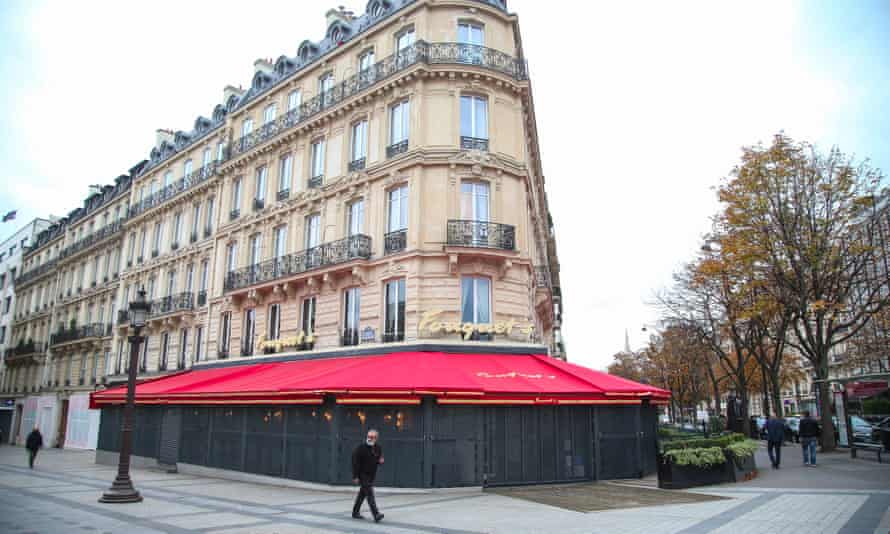
Curfews and lockdowns The second lockdown was replaced with a 6pm curfew in mid-December. Bars, restaurants and cultural venues remain closed. A third lockdown is expected next week.
Schools Open since June. Some secondary schools operate a 50-50 split between remote and classroom learning. Masks are obligatory from age six.
Socialising A “rule of six” introduced in October applies up to the 6pm curfew.
Travel Arrivals from non-EU/Schengen countries must present a negative PCR test less than 72 hours old or will be tested on arrival.
Deaths per million 1,096
Vaccinated 1.74%
Germany
Curfews and lockdowns In hotspots where new cases of Covid exceed 200 per 100,000 inhabitants within a week, residents are not allowed to stray more than 15km (10 miles) beyond the borders of their city, town or rural district. Two of Germany’s 16 federal states, Bavaria and Saxony, have introduced day- and night-time curfews.
Schools Closed until at least 14 February; nurseries offer care for children of essential workers only.
Socialising Gatherings in the home and outside are only allowed with members of one’s own household and one more person from another household, including children.
Travel Arrivals from high-risk areas must digitally register their trip before arrival, carry proof of a negative test result obtained no more than 48 hours before their entry, and self-isolate for 10 days.
Deaths per million 655
Vaccinated 2.38%
India
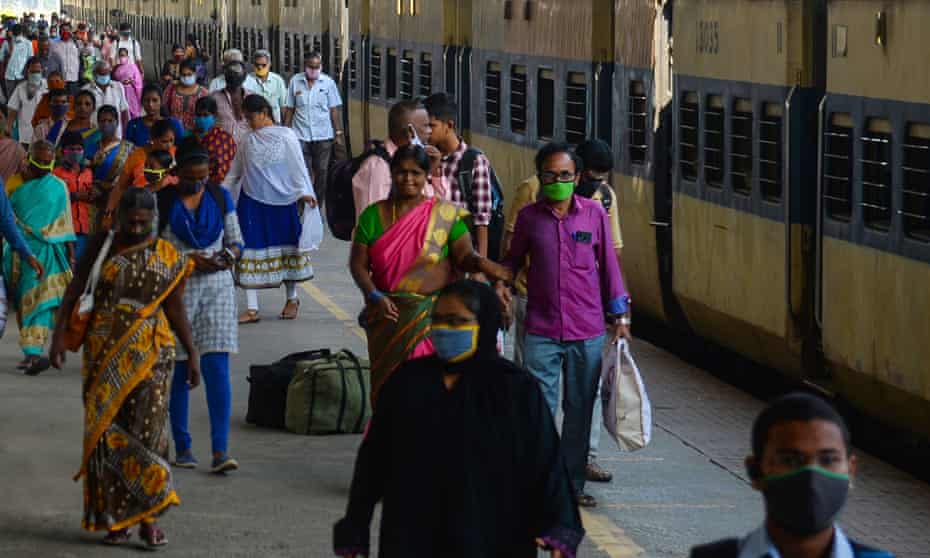
Curfews and lockdowns As daily case numbers have fallen to their lowest since April, few restrictions on hospitality and socialising remain in place but masks are mandatory in public places.
Schools Closed for 10 months, they have begun opening in most states.
Socialising Social and religious gatherings are largely limited to 200 people, though in Kerala, where about 50% of new cases have originated, the limit is 10.
Travel Borders remain closed to all but Indian citizens and business travellers, and all flights between the UK and India are banned until 14 February.
Deaths per million 112
Vaccinated 0.15%
Italy
Curfews and lockdowns A national 10pm-5am curfew is in place, with varying levels of lockdowns across the country’s 20 regions. Most regions are in the medium-risk “orange zone”, where bars and restaurants can open for takeout and all other shops are open.
Schools Infant and primary schools reopened in early January, while the majority of Italy’s high school and university student are doing online learning.
Socialising There are no enforced limits on the number of people who can gather. There is still a ban on inter-regional travel unless for work or emergency reasons.
Travel No entry for those who have been in or transited through the UK within the previous 14 days, unless they have residency in Italy. Those with residency must provide a negative test before leaving the UK, take another on arrival in Italy, and quarantine for two weeks. Similar restrictions are in place for arrivals from Brazil.
Deaths per million 1,441
Vaccinated 2.61%
Japan
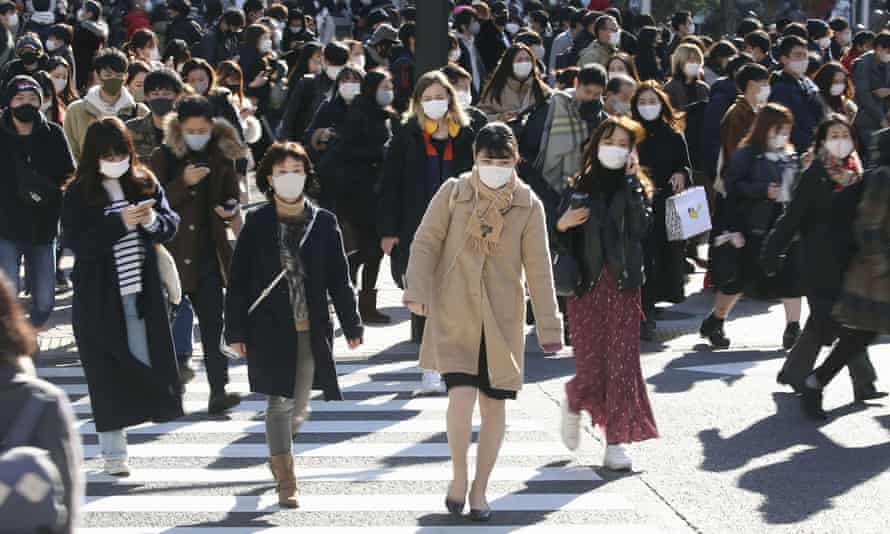
Curfews and lockdowns The government has no legal power to order a lockdown, so measures are voluntary. They include bars and restaurants closing early (those that do are eligible for subsidies), avoiding non-essential trips outside, and working from home where possible.
Schools Closed from late February to May last year and now open, with measures such as desk spacing and classroom ventilation.
Socialising The government advises people not to dine in groups of more than four, but there are no UK-style rules on contact between households.
Border restrictions Since this month all new arrivals from overseas are banned apart from Japanese citizens and foreign residents of Japan. Negative Covid tests are required before departure for Japan and after arrival, plus 14 days quarantine at home. Arrivals from UK and South Africa must spend the first three days at a designated facility.
Deaths per million 42
Vaccinated None
Netherlands
Curfews and lockdowns Bars and restaurants closed in October and non-essential shops followed suit in mid-December. A 9pm-4.30am curfew was introduced on 23 January.
Schools Closed in mid-December.
Socialising The number of guests allowed in people’s homes was reduced from two to one this month.
Travel Banned from the UK, South Africa and South America, and a recent negative PCR test is required from arrivals from higher-risk non-EU/EEA areas.
Deaths per million 786
Vaccinated 1.08%
South Africa
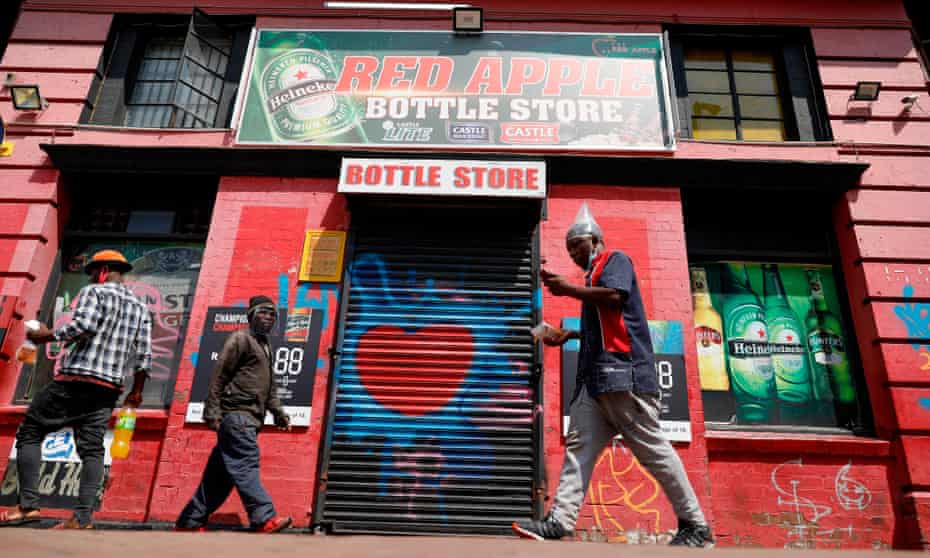
Curfews and lockdowns In a second lockdown, with limits on gatherings, a ban on alcohol sales and a night-time curfew. Not wearing a mask in a public place is punishable by a fine or up to six months in prison.
Schools Told to push back the start of the academic year by two weeks.
Socialising No socialising between households; funerals allowed with fewer than 50 people.
Travel Land border points and some airports are closed. International arrivals must present a negative PCR test less than 72 hours old or will have to quarantine.
Deaths per million 733, according to government statistics, though excess mortality statistics suggest a toll at least twice that number.
Vaccinated None
Spain
Curfews and lockdowns An overnight curfew was introduced in October, but the government has ruled out a return to the stringent national lockdown imposed in the spring and early summer last year. It has left the 17 self-governing regions to impose further restrictions if they choose, for instance limiting shop and restaurant opening hours.
Schools Open nationwide, with masks mandatory, as elsewhere across the country, and classrooms being ventilated.
Socialising Varies from region to region. In Madrid, private gatherings between households are banned but up to four people can meet in public places such as cafes, bars and restaurants. Valencia and Murcia have banned gatherings of more than two people from different households.
Travel All passengers entering Spain from a high-risk country – such as the UK – must supply a negative test carried out within 72 hours of arrival.
Deaths per million 1,216
Vaccinated 2.9%
Sweden
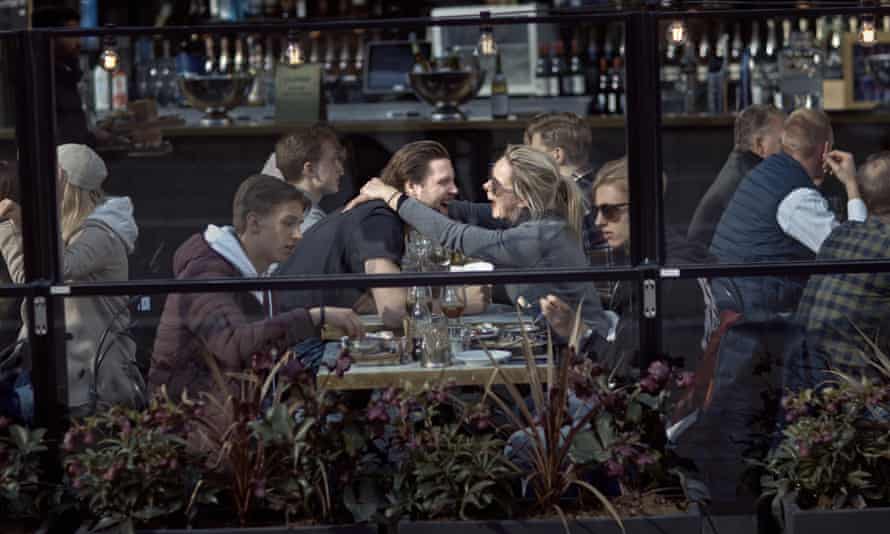
Curfews and lockdowns Non-essential shops remain open, as do bars and restaurants, albeit with no alcohol after 8pm. The government sees home working as the most vital measure.
Schools Rules for primary and lower secondary schools vary regionally. Over-16 education nationwide is mostly remote, although some in-person teaching is allowed.
Socialising Private gatherings inside were limited to eight people on 8 January, a restriction that previously applied only to public meetings.
Travel Closed to arrivals from Norway, Denmark and the UK. Travel from non-EU/EEA countries not on the EU’s low-risk list (which includes Australia, New Zealand and Singapore) is also banned.
Deaths per million 1,110
Vaccination rate Data unavailable
Taiwan
Curfews and lockdowns Taiwan avoided lockdowns and curfews by bringing in strict border controls, effective test-and-trace systems and hygiene measures including state distribution of masks at the start of the pandemic.
Schools Education in Taiwan has continued largely as normal, apart from a short extension to holidays in February last year and extra hygiene measures in schools.
Socialising Unaffected, apart from some modest extra hygiene measures such as a requirement to wear masks on public transport.
Travel Taiwan sealed its borders early in the pandemic. Some international travellers are now allowed into the country, but all arrivals must spend two weeks in quarantine hotels.
Deaths per million 0.29
Vaccinated None
United States
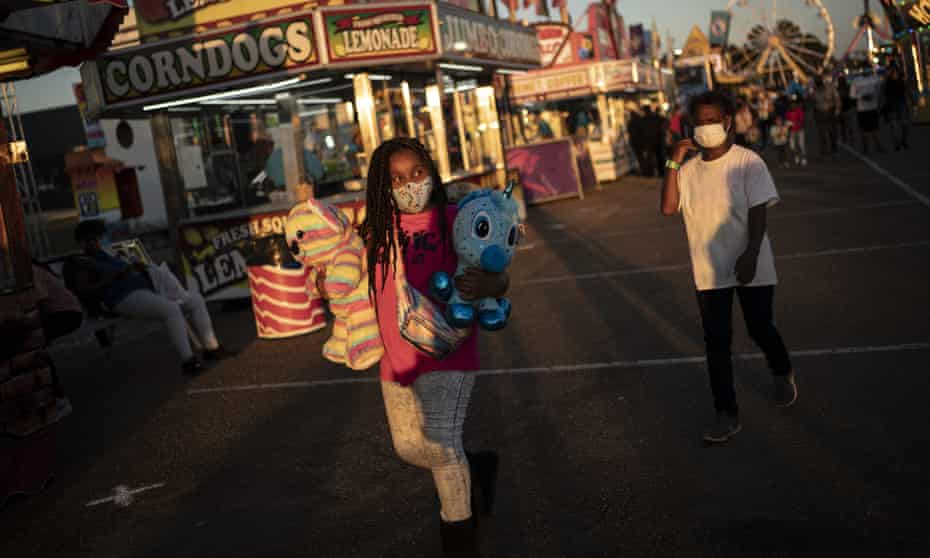
Curfews and lockdowns Individual states set their own Covid-19 regulations, and the vast majority do not have any curfews or restrictions on non-essential businesses, though some have ordered bars and nightclubs to remain closed.
Schools Most states have given school districts the option to hold classes virtually or in person with proper safety protocols. Four states have ordered their schools to offer in-person instruction, and six states have ordered the closure of schools in counties with high rates of infection.
Socialising Restrictions vary widely from state to state. Some have banned all public gatherings of more than 10 people in areas with high rates of infection; others allow up to 50 people to gather outside. A handful of states, including Kentucky and Florida, do not have any gathering restrictions.
Travel Non-US citizens from t
he UK, Ireland, Europe’s Schengen area, Brazil and South Africa are banned from travelling to the US. Similar bans on non-US citizens travelling from China and Iran are still in place. The US is more relaxed on domestic travel: some states welcome out-of-state travellers with negative Covid tests, while more than half do not have any travel restrictions.
Deaths per million 1,301
Vaccinated 7.11%
Reporting team: Jon Henley, Angela Giuffrida, Sam Jones, Hannah Ellis-Petersen, Justin McCurry, Tom Phillips, Lauren Aratani, Emma Graham-Harrison.
